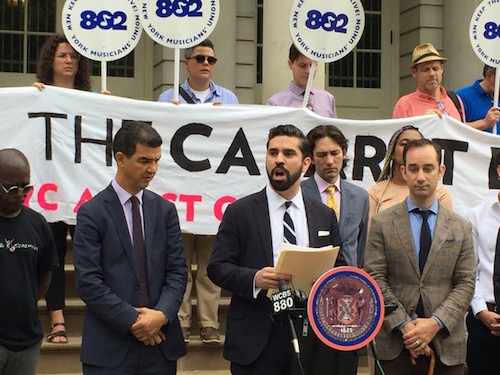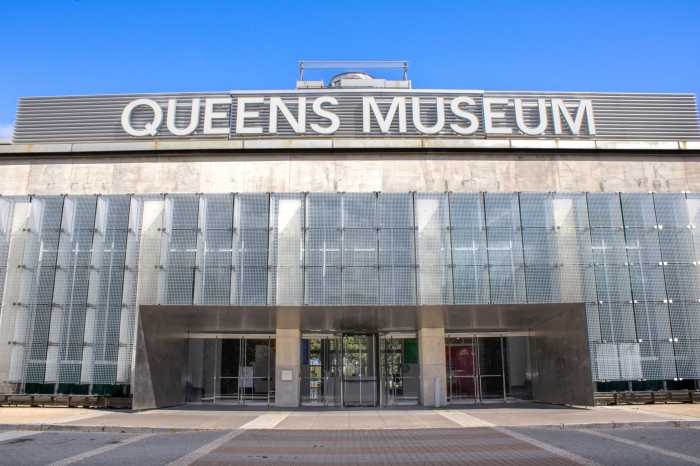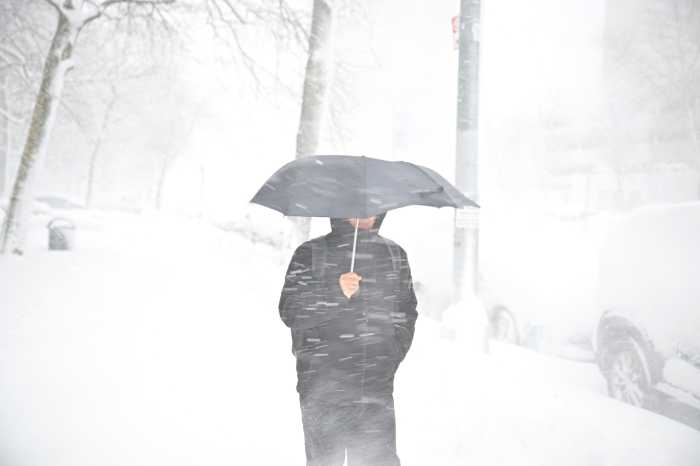City Councilmember Rafael Espinal (D-Bushwick, East New York) held a press conference at City Hall yesterday to get New York City dancing again.
Accompanying Espinal were City Councilmember Ritchie Torres (D-Bronx), business owners and labor union representatives in his charge to “amend the administrative code of the city of New York, in relation to establishing an office of nightlife and a nightlife task force.”

The proposed bill, Intro 1648, seeks to create a Nightlife Task Force and Office of Nightlife to govern and regulate New York City’s thriving night scene.
The task force proposal is part of a larger plan to repeal the antiquated Cabaret Law, which has a long sordid history in New York City dating back as far as 1926 and is openly criticized as legislation that purposely sought to deny African Americans entertainment careers during the Harlem Renaissance.
Under current New York City law, dancing in all NYC spaces that serves food and/or drink is prohibited unless the owner of the establishment applies for and secures a cabaret license from the Department of Consumer Affairs.
“It is ridiculous that in NYC dancing is just as illegal as it was in the fictional movie “Footlose,’” said Espinal. “While there is no Kevin Bacon here to take on the fictional City Council of Bomont, advocates here today [are] trying to do away with this antiquated and discriminatory law in the name of social justice.”

Since 1926, the racially biased overtone of the law has been successfully challenged. In 1986, for example, the distinction between jazz instruments [horns were banned from playing in many nightclubs] and non-jazz instruments was found unconstitutional by the Supreme Court of New York in Chiasson v. N.Y.C. Dept. Of Consumer Affairs.
However enforcement of the outdated law made a resurgence during the 1990s when then Mayor Rudolph Giuliani used the cabaret law as a tool for his “quality of life” campaign. According to Espinal, during this period, the law was once again used to target venues of color.
“It was seen as the war against any music of dance revolution happening throughout the city –– in neighborhoods like the East Village and the Lower East Side,” said Espinal.
Despite the racist undertones, the legislation does have supporters who argue the law’s ability to enforce safety at neighborhood bars and restaurants.
Throughout the years, the legislation has undergone a series of updates and amendments that incorporate security and safety measures enmeshing the right to dance with fire, safety and disturbance ordinances.
As a result, owners of small bars, restaurants and lounges seeking to acquire a cabaret license must also meet the demands of zoning, building and fire codes of a venue usually three times its size and which operates in the capacity of an actual dance hall. Therefore, if patrons start dancing in a smaller, more intimate venue, the establishment risks being fined as an unlicensed cabaret.
This is the case of Andrew Muchmore, a 36-year-old attorney and Williamsburg bar owner. Muchmore was fined when patrons were found dancing in his establishment. The store owner is challenging the city’s 90-year old legislation on the grounds the law is unconstitutional under the First and Fourteenth Amendments.
“It is astonishing that the Cabaret Law continues to exist in the 21st Century,” said Muchmore. “It serves no legitimate purpose, yet suffocates the City’s musicians, artists and creative economy. The law has been consistently disregarded and mocked, and is enforced only arbitrarily against the City’s most vulnerable residents.”
As the Chair of the Committee on Consumer Affairs and sponsor of the bill 1648, Espinal seeks to find middle ground between neighbors, business owners and patrons by initiating the Nightlife Task Force and Office of Nightlife.
The task force will be composed of nine members, five of which would be mayoral appointments, and four of which will be City Council Speaker appointments. Its purview will include regulating the nightlife industry, public safety concerns and zoning as it relates to community development.
During an City Council oversight hearing to introduce bill Intro 1648, the mayor’s office said they would consider structural changes to the Cabaret Law, but could not speak to what those changes are because of the ongoing lawsuit with Muchmore.










